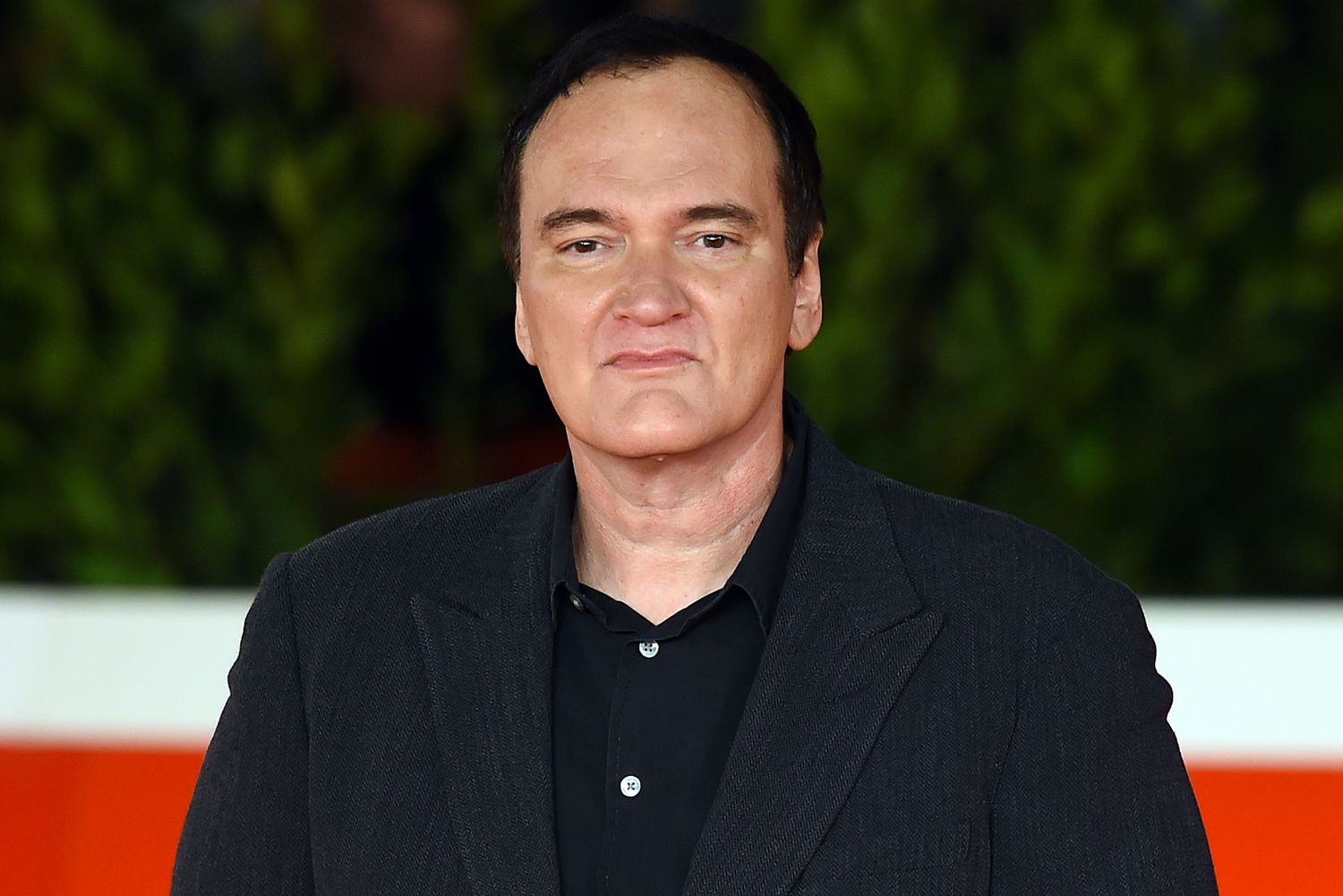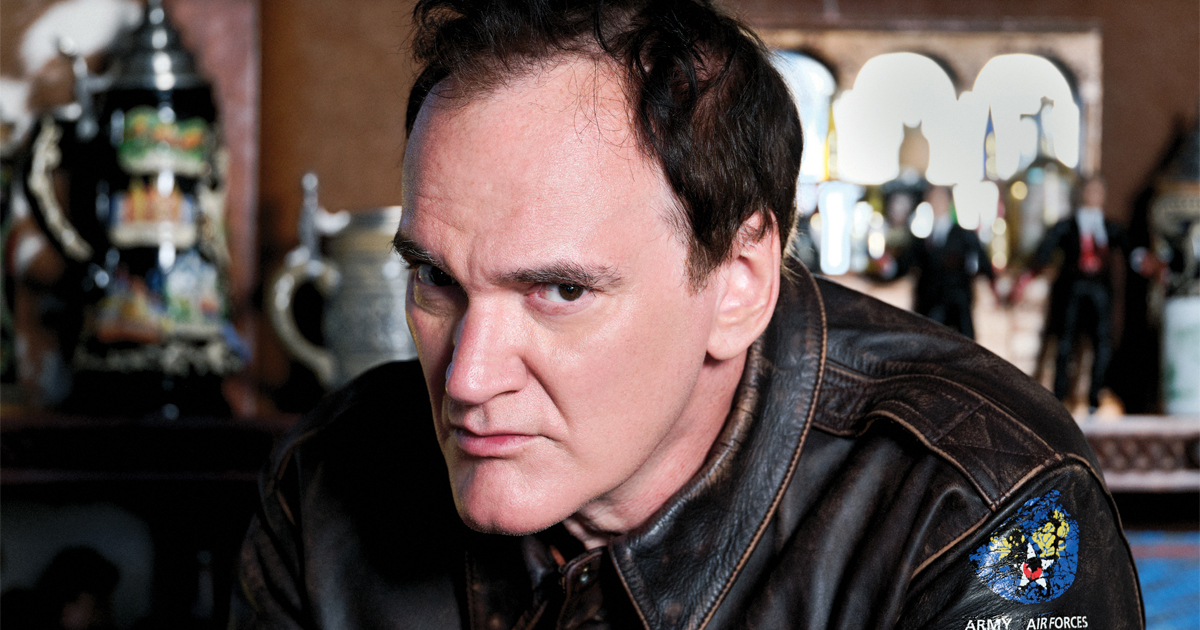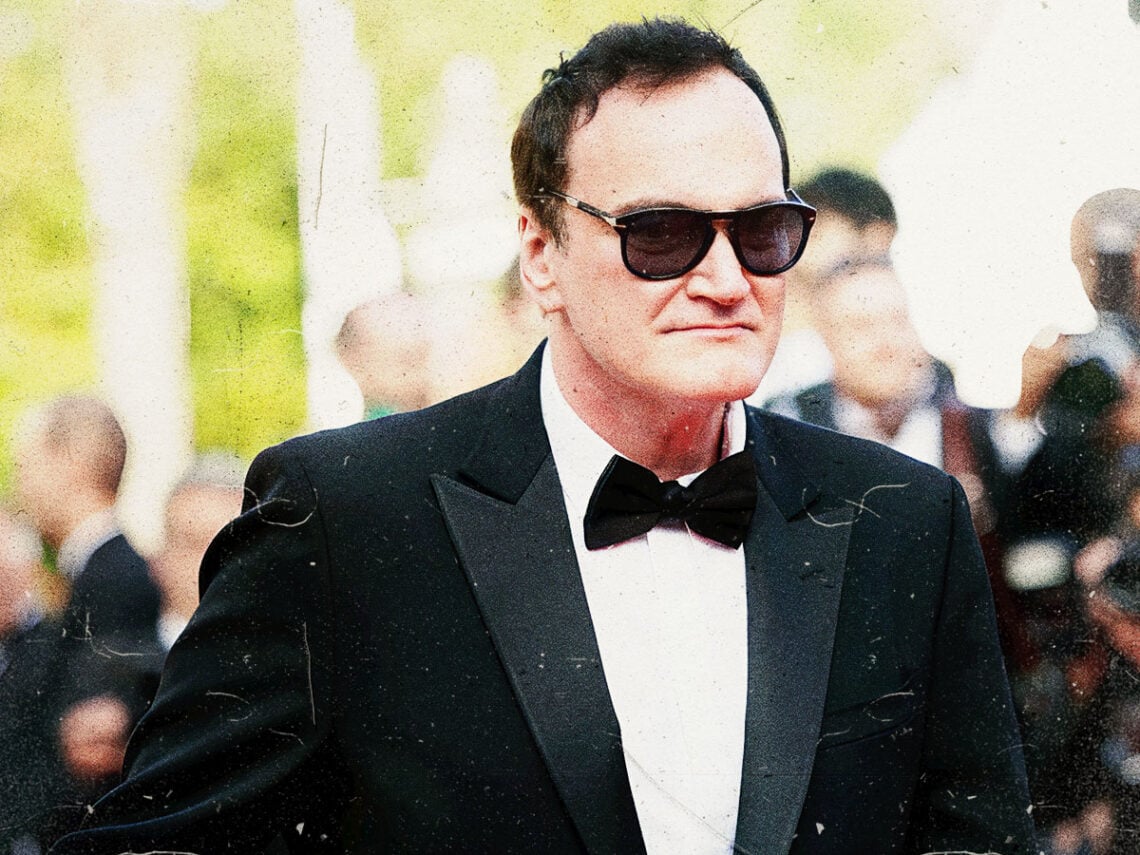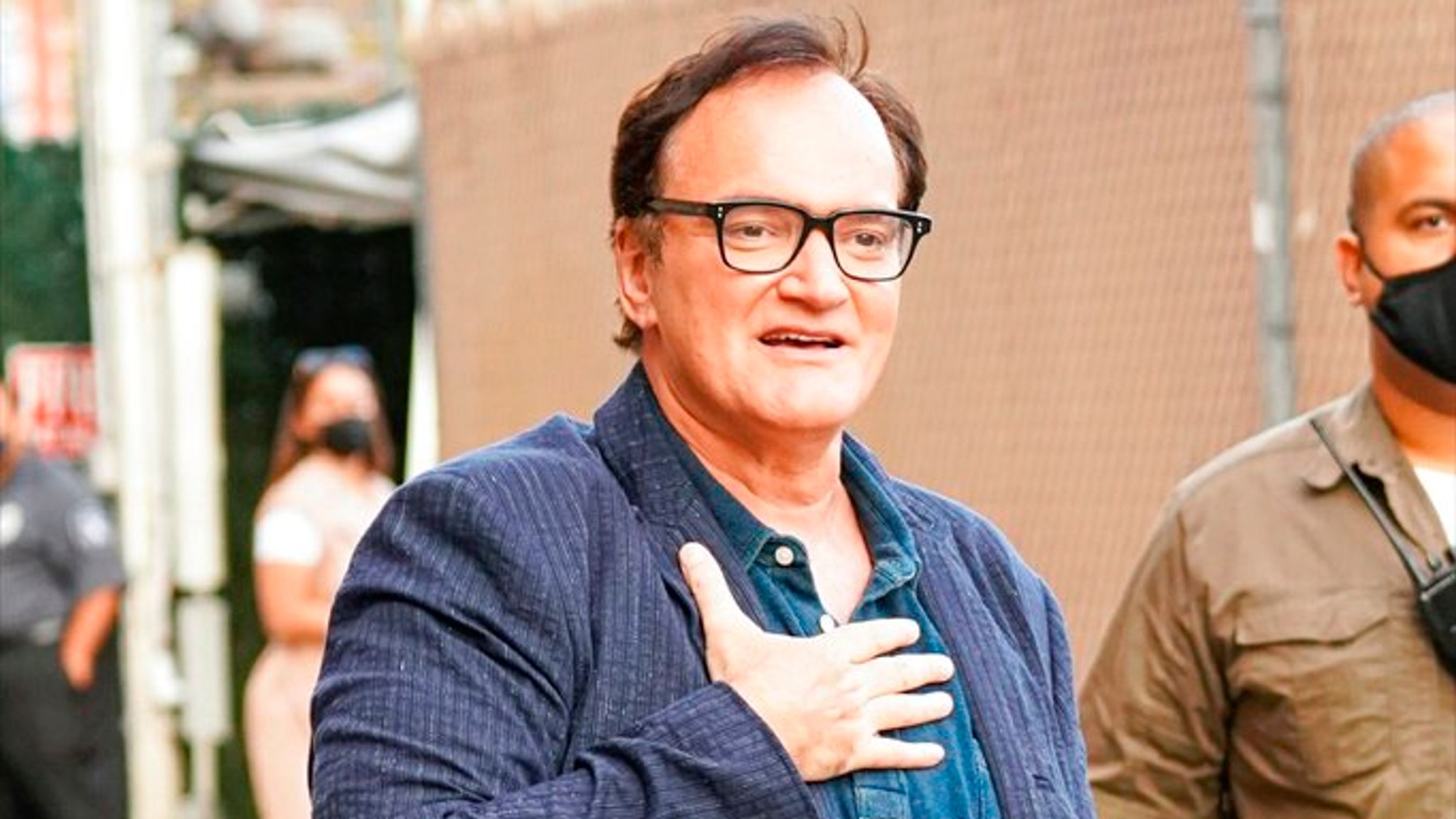Quentin Tarantino - A Master Of Genre-Bending Cinema
Explore the cinematic universe of Quentin Tarantino, a master storyteller known for his bold narratives, genre-blending expertise, and unapologetic approach to filmmaking. Immerse yourself in the unique world of Tarantino's films, where each frame is a testament to his indomitable spirit and unparalleled contribution to the art of cinema.
Author:Emily SanchezReviewer:James PierceJan 24, 20246.5K Shares131K Views
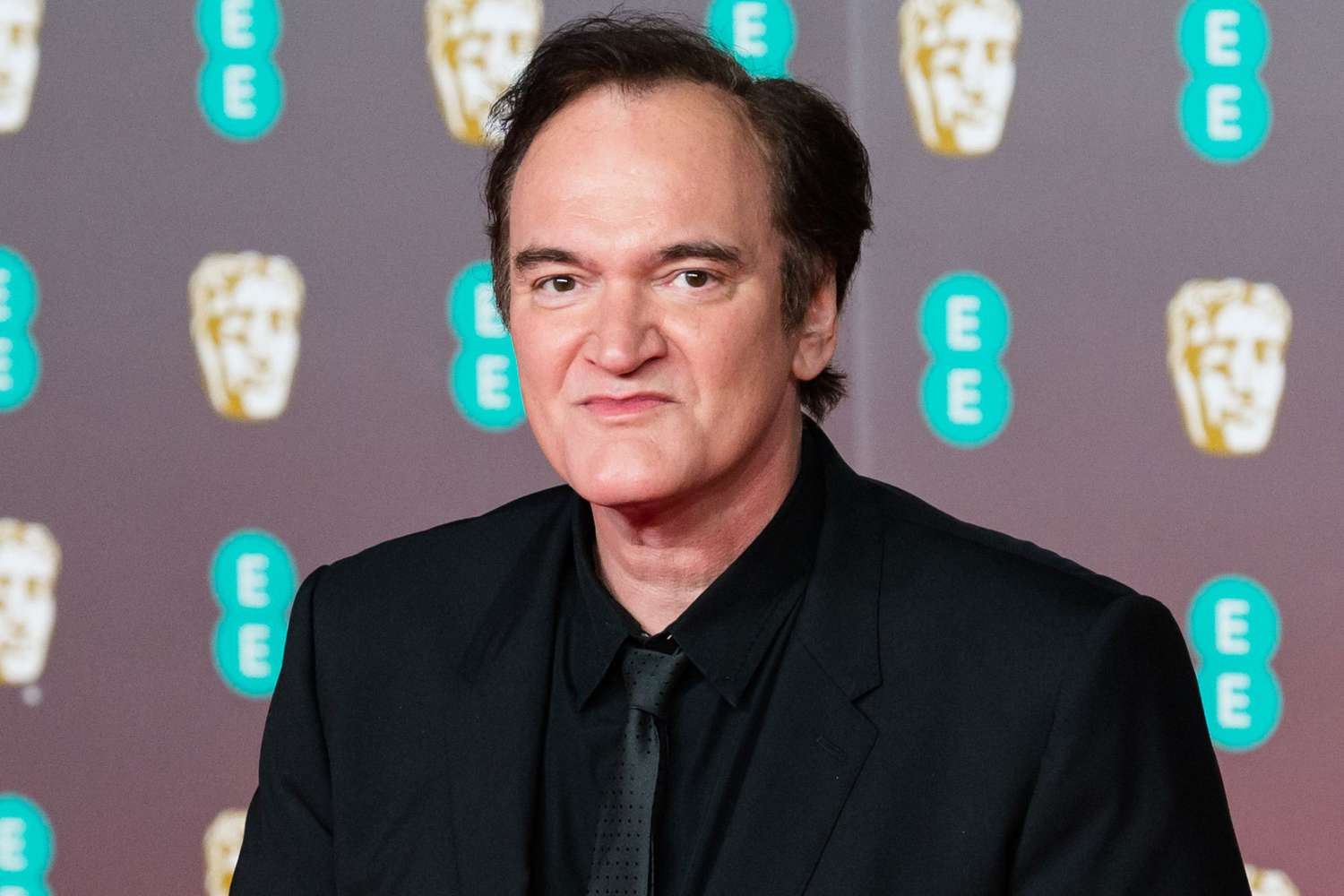
Quentin Tarantino, a name synonymous with cinematic innovation, storytelling prowess, and a distinctive blend of genres, stands as one of the most influential filmmakers of our time. Tarantino's journey from a video store clerk with a passion for movies to an Academy Award-winning director has been nothing short of extraordinary. His impact on the film industry is not merely defined by critical acclaim but by his fearless approach to storytelling, genre-blurring narratives, and an unapologetic celebration of the art of filmmaking.
Quick Facts About Quentin Tarantino
| Name | Quentin Tarantino |
| Birthday | March 27, 1963 |
| Profession | Director |
| Net worth | $120 million |
Early Life Of Quentin Tarantino
Quentin Tarantino's journey began on March 27, 1963, in Knoxville, Tennessee. Born to Connie McHugh, a woman of Cherokee and Irish descent, and actor Tony Tarantino, Quentin faced the challenge of growing up with an absent father, as Tony left the family before his son's birth.
At the tender age of 4, Tarantino's life took a cinematic turn as his family relocated to California. It was here that he nurtured an early love for movies, with one of his first cinematic memories involving his grandmother taking him to watch a John Wayne film. However, his creative spirit manifested in unconventional ways, as he would pen melancholic Mother's Day stories for his mother, illustrating his unique storytelling inclination.
As Connie recalled in an interview with Entertainment Weekly, "He wrote me sad Mother's Day stories. He'd always kill me and tell me how bad he felt about it," reflecting a glimpse of the budding filmmaker's distinctive imagination.
School was not Tarantino's preferred domain, as he rejected traditional education in favor of immersing himself in the world of movies and comics. History, with its narrative allure, became his sole academic interest. This passion for storytelling and history would later become evident in his groundbreaking films.
Choosing to forge his path, Tarantino dropped out of high school, opting to pursue his cinematic aspirations. His early work experiences included a stint as an usher at an adult film theater and participation in acting classes. Fatefully, he found himself at Video Archives in Manhattan Beach, California, where he collaborated with like-minded individuals such as Roger Avary.
Early Films Of Quentin Tarantino
Embracing the pulse of his cinematic ambitions, Quentin Tarantino's tenure at Video Archives proved transformative as he immersed himself in the realm of storytelling. During this period, he began crafting screenplays that would shape his trajectory in the film industry, notably penning works such as 'True Romance' and 'Natural Born Killers.'
Tarantino's eclectic journey took an unexpected turn when he landed a guest spot on the beloved sitcom 'The Golden Girls,' showcasing his versatility by portraying an Elvis Presley impersonator. This small-screen escapade added a layer of dynamism to his creative pursuits.
In 1990, Tarantino departed Video Archives to join Cinetel, a production company that played a pivotal role in his cinematic ascent. Through fortuitous connections, he navigated the industry's landscape, eventually placing his script for 'True Romance' in the hands of acclaimed director Tony Scott, who was captivated by Tarantino's narrative prowess and promptly acquired the rights to the script.
Collaborating with producer Lawrence Bender, Tarantino successfully secured funding for his directorial debut, 'Reservoir Dogs' (1992), a film that would not only bear his directorial stamp but also showcase his prowess as a screenwriter. The cast, led by the impressive Harvey Keitel, was drawn to the script's unique characters, with Keitel expressing, "I haven't seen characters like these in years."This project marked a significant collaboration for Keitel, who not only took on an acting role but also assumed the role of producer.
Premiering at the Sundance Film Festival in 1992, 'Reservoir Dogs' captivated audiences with its ultraviolent crime narrative gone awry. Drawing inspiration from classic heist films such as 'Rififi' and 'City on Fire,' Tarantino showcased his ability to weave together disparate influences into a cohesive and gripping story.
Career Breakthrough Of Quentin Tarantino
Oscar Win For 'Pulp Fiction'
In the cinematic landscape of the 1990s, Quentin Tarantino etched his name indelibly with the groundbreaking masterpiece, 'Pulp Fiction' (1994). This film, a kaleidoscope of unpredictable thrills, violence, and an unparalleled barrage of pop culture references, showcased Tarantino's storytelling prowess at its zenith.
Within its intricate narrative tapestry, John Travolta's portrayal of Vincent Vega, a hitman tasked with safeguarding his boss's girlfriend (Uma Thurman), not only revitalized Travolta's career but also became emblematic of the film's transformative impact.
'Pulp Fiction' ingeniously wove multiple storylines, exploring the partnerships of hitmen Vincent Vega and Jules Winnfield (played by Samuel L. Jackson) and delving into the turbulent world of a boxer portrayed by Bruce Willis. Eric Stoltz, who played a drug dealer in the film, aptly captured Tarantino's creative whirlwind, stating, "His mind works like the Tasmanian Devil on a bullet train. It's so fast that very few people can keep up with his references."
The film's success transcended conventional boundaries, achieving both critical acclaim and commercial triumph. Surpassing $108 million at the domestic box office, 'Pulp Fiction' became the first independent film to achieve such a milestone.
Its coronation at the Cannes Film Festival with the Palme d'Or and seven Academy Award nominations, including Best Picture and Best Director, further solidified Tarantino's status as a cinematic luminary. The coveted Best Original Screenplay Oscar shared with Roger Avary despite their falling out, underscored Tarantino's ability to craft narratives that resonate on a global scale.
'Natural Born Killers,' 'From Dusk Till Dawn,' 'Jackie Brown'
Tarantino's career trajectory encountered both highs and tempestuous moments, exemplified by public disagreements and creative clashes. The rift between Tarantino and director Oliver Stone surfaced during the making of 'Natural Born Killers' (1994). Stone's extensive rewrites to Tarantino's script led to an intense dispute, prompting Tarantino to distance himself from the project. Stone defended the alterations, claiming they enhanced character development, while Tarantino vehemently fought to disassociate himself from the final product.
In the aftermath of this discord, Tarantino ventured into diverse projects. His collaboration with Robert Rodriguez on 'From Dusk Till Dawn' (1996) marked a departure into the realm of horror, where he not only penned the screenplay but also starred alongside George Clooney. The film, despite receiving mixed critical reviews, showcased Tarantino's versatility in exploring different genres.
Tarantino's directorial prowess shone brightly in 'Jackie Brown' (1997), a crime thriller paying homage to the blaxploitation films of the 1970s. Starring Pam Grier as a stewardess embroiled in a smuggling scheme, the film demonstrated a more mature and nuanced side of Tarantino's storytelling. Despite some controversy surrounding his use of a derogatory term, the film garnered acclaim for its dynamite performances, including those by Michael Keaton, Robert De Niro, and Robert Forster.
Continued Success Of Quentin Tarantino
Broadway's 'Wait Until Dark'
Following the triumph of 'Jackie Brown,' Quentin Tarantino, ever the cinematic maverick, chose an unconventional path, stepping away from the silver screen to make a bold foray into Broadway. In 1998, he graced the stage in a revival of 'Wait Until Dark' alongside Marisa Tomei. The play marked a departure from his cinematic comfort zone, as he assumed the role of a menacing thug terrorizing a blind woman portrayed by Tomei.
This venture into professional stage work was a risky endeavor for Tarantino, who, despite his cinematic accolades, faced a challenging reception from theater critics. The reviews were undeniably harsh, leaving Tarantino disheartened. Struggling with thinning skin and constant scrutiny, Tarantino navigated through this challenging phase, questioning not just the play but his artistic identity in the face of relentless criticism.
During this hiatus from filmmaking, Tarantino embarked on a creative journey with a World War II script, a project that would test the boundaries of his storytelling prowess.
'Kill Bill'
Amidst the hiatus, Tarantino's creative cauldron bubbled with a new concoction - 'Kill Bill.' Originating from a casual conversation with Uma Thurman during the filming of 'Pulp Fiction,' the concept materialized into a martial arts epic. Tarantino's promise to Thurman to write the script as a birthday gift propelled him into a year-long odyssey of kung fu filmmaking.
Despite initial challenges and a learning curve in crafting a martial arts film, Tarantino's dedication and hands-on approach prevailed. 'Kill Bill' emerged as a two-part cinematic odyssey, with 'Vol. 1' hitting theaters in late 2003, followed by 'Vol. 2' a few months later. The films explored themes of revenge as Thurman's character, the Bride, sought vengeance against those responsible for a brutal attack on her and her wedding party.
'Grindhouse,' 'Inglourious Basterds'
Post-'Kill Bill,' Tarantino dipped his toes into television, contributing to an episode of CSI: Crime Scene Investigation in 2005, earning him an Emmy Award nomination. Collaborating once again with Robert Rodriguez, the two directors embarked on the ambitious 'Grindhouse' (2007), a double-feature homage to B-movies.
Tarantino, undeterred, returned to his World War II script, and in 2009, he unveiled 'Inglourious Basterds.' This audacious film, centered around a group of Jewish-American soldiers seeking revenge against Nazis, featured Brad Pittin a charismatic lead role. Despite mixed reviews, Tarantino's confidence in his craft remained unshaken, emphasizing his unique perspective and understanding of film.
Second Oscar Win For 'Django Unchained'
Tarantino continued his cinematic journey with 'Django Unchained' in 2012, an action Western that garnered both commercial success and critical acclaim. At the 85th Academy Awards in 2013, he secured another Oscar for Best Original Screenplay. The film, led by Jamie Foxxand Christoph Waltz, explored themes of slavery and revenge, showcasing Tarantino's ability to blend historical elements with his signature style.
'The Hateful Eight,' 'Once Upon A Time... In Hollywood'
In 2015, Tarantino returned to the Western genre with 'The Hateful Eight,' featuring an ensemble cast of frequent collaborators. The film earned Golden Globe nominations, reaffirming Tarantino's enduring impact on the industry.
Four years later, he unveiled 'Once Upon a Time... in Hollywood,' a nostalgic journey into 1969 Hollywood. Co-starring Leonardo DiCaprioand Brad Pitt, the film presented a revisionist take on the Manson family murders. Premiering at the Cannes Film Festival, it received a seven-minute standing ovation, signaling Tarantino's continued ability to captivate audiences. The film's subsequent Golden Globe wins underscored its critical acclaim and solidified Tarantino's status as a cinematic maestro, ever unafraid to reshape the narrative landscape.
Awards And Achievements Of Quentin Tarantino
Quentin Tarantino's illustrious career is adorned with a multitude of prestigious awards and accolades, a testament to his unparalleled contributions to the world of cinema. Among the numerous honors he has received, several stand out as defining moments in his journey:
- Independent Spirit Award (1994)- Quentin Tarantino secured the Independent Spirit Award for 'Best Director' in 1994 for his groundbreaking work on 'Pulp Fiction,' marking his early recognition within the independent film community.
- Academy Award - Pulp Fiction (1995)- The pinnacle of recognition came in 1995 when Tarantino clinched an Academy Award for 'Best Writing (Original Screenplay)' for 'Pulp Fiction.' This prestigious honor solidified his status as a masterful storyteller and innovator in the film industry.
- Critics Choice Award - Inglourious Basterds (2010)- Tarantino's talent for crafting compelling narratives was once again celebrated in 2010 when he received the Critics Choice Award for 'Best Original Screenplay' for 'Inglourious Basterds' from the Broadcast Film Critics Association. This award underscored his ability to captivate both audiences and critics alike.
- Academy Award - Django Unchained (2013)- The year 2013 marked another triumphant moment for Tarantino as he clinched the coveted Academy Award for 'Best Original Screenplay' for 'Django Unchained.' This recognition reaffirmed his mastery of the art of storytelling, particularly for his bold and unapologetic take on historical narratives.
- BAFTA Award - Django Unchained (2013) - His success transcended borders, as Tarantino's brilliance was acknowledged on the international stage with a BAFTA Award for 'Best Original Screenplay' for 'Django Unchained' in 2013. This accolade highlighted the global impact of his storytelling prowess.
- Golden Globe Award- Django Unchained (2013) - The same year brought yet another Golden Globe Award, this time for 'Best Screenplay' for 'Django Unchained.' Tarantino's ability to seamlessly blend genres and deliver compelling narratives resonated with the Hollywood Foreign Press Association, further solidifying his place among the cinematic elite.
Quentin Tarantino's Net Worth And Salary
Quentin Tarantino's estimated net worthis $120 million. This impressive financial standing is a testament to his prolific career as a writer, producer, director, and actor in the film industry.
Quentin Tarantino's earnings are notable for their uniqueness in the realm of filmmaking. For his standard role in directing, producing, and writing his movies, Tarantino typically commands a $20 million advance. What sets him apart is his ownership of a substantial backend percentage of his films' profits. This arrangement allows him to reap additional financial rewards based on the success of his projects, translating into a total per-movie income ranging from $30 to $40 million in certain cases.
Tarantino's distinct approach to storytelling and filmmaking has not only garnered critical acclaim but has also proven to be commercially successful. His films, recognized for their characteristic style and unconventional narratives, have collectively generated more than $1.5 billion globally.
Real Estate Properties Of Quentin Tarantino
Quentin Tarantino, the enigmatic filmmaker renowned for his distinct cinematic style, divides his time between two remarkable residences that mirror his eclectic lifestyle - one nestled in the iconic Hollywood Hills and the other in the bustling heart of New York City.
Quentin Tarantino House, Hollywood Hills
In the illustrious realm of Los Angeles, Tarantino resides in an opulent mansion sprawled across 8,733 square feet in the prestigious Hollywood Hills. This sprawling estate, perched on a lush 1.23-acre lot, exudes privacy and grandeur. Constructed in 1986, the mansion boasts eight bedrooms and eight baths, providing an expansive yet intimate living space for the acclaimed director.
Though details about the interior remain elusive, the real estate listing tantalizingly mentions a hot tub with a spa, while aerial photographs unveil a generously sized outdoor pool with a diving board. The estate, acquired by Tarantino in 1996 for approximately $3 million from musician Richard Marx, reflects the filmmaker's enduring connection to the glitz and glamour of Hollywood.
Despite the lack of interior glimpses, the exterior speaks volumes about Tarantino's penchant for luxury. Several of his high-end automobiles grace the driveway, adding a touch of sophistication to the Hollywood Hills abode.
Quentin Tarantino House New York City
In the urban tapestry of New York City, Tarantino maintains a discreet yet elegant presence in a luxury condo located at "15 Charles at Waverly Place" in Manhattan's coveted West Village.
Acquired through the Wilson Trust in 1998 for $680,000, this residence showcases Tarantino's knack for maintaining a low profile in the bustling metropolis. The condo, situated on the 10th floor, offers a quiet retreat amidst the city's ceaseless energy - a pragmatic choice for a filmmaker whose craft demands coast-to-coast travel.
Quentin Tarantino's Personal Life
Quentin Tarantino's personal life is a tapestry woven with relationships, spanning the realms of comedy, acting, and filmmaking. In the early '90s, he found companionship with comedians Margaret Cho and Kathy Griffin, showcasing a penchant for connections with individuals immersed in the world of humor.
Between 1995 and 1998, Tarantino's romantic journey led him to actress Mira Sorvino, highlighting a period of shared experiences and mutual support within the entertainment industry. A few years later, from 2003 to 2005, Tarantino's heart found resonance with filmmaker Sofia Coppola, a period marked by creative collaboration and personal connection.
The turning point in Tarantino's romantic narrative arrived in June 2017 when he announced his engagement to Israeli singer Daniella Pick. Their union culminated in a joyous celebration in November 2018, uniting two individuals from distinct cultural backgrounds. The couple has since expanded their family, welcoming a son and a daughter, and their shared life unfolds in the dual landscapes of Los Angeles and the Ramat Aviv Gimel neighborhood in Tel Aviv, Israel.
Facts You Probably Didn't Know Quentin Tarantino
- Tarantino adamantly opposes product placement in his films, leading to the creation of fictional brands like Red Apple cigarettes and the now-defunct Fruit Brute cereal within his cinematic universe.
- During the production of "Kill Bill: Vol. 1," Tarantino displayed an unwavering commitment to Uma Thurman, delaying filming for several months when she became pregnant. Refusing to recast, he had written the role specifically for her based on their collaboration in "Pulp Fiction."
- Tarantino cites three films that have profoundly influenced his directorial style: "The Good, the Bad and the Ugly" for its obvious impact, Mario Bava's "Black Sabbath" for teaching the importance of directorial voice, and "Abbott and Costello Meet Frankenstein" for its genre-blending lessons.
- The filmmaker enforces a strict no-cell-phone policy on set, requiring all devices to be surrendered at the entry point, reflecting his dedication to maintaining focus and avoiding distractions during production.
- Expressing a desire to direct a James Bond movie, Tarantino has revealed his interest in bringing his unique vision to the iconic spy franchise at some point in his illustrious career.
- Tarantino acknowledges directors Martin Scorsese, Brian De Palma, Sergio Leone, Jean-Luc Godard, and Howard Hawks as significant influences on his cinematic journey.
- The term "Tarantinoesque" was officially recognized by the Oxford English Dictionary in 2018, describing films characterized by graphic violence, non-linear storylines, cinematic references, satirical themes, and sharp dialogue.
- Tarantino's love for cinema extends beyond filmmaking; he owns the New Beverly Cinema in Los Angeles, a revival theater he frequented as a child. His dedication saved the theater from redevelopment, and he curated its eclectic programming.
- Tarantino has a principled stand against the inclusion of real animal and insect violence in movies, emphasizing the importance of realism through artistic representation.
- Known for his eclectic tastes, Tarantino is a fervent fan of the Half-Life computer game series and has explored possibilities of directing a movie adaptation.
- Despite dropping out of Narbonne High School at 16, Tarantino's decision was met with his mother's reluctant consent, hoping he would return with newfound focus. His reported IQ of 160 reflects his unconventional yet successful path.
- Contrary to fan comparisons, Tarantino considers fellow director Paul Thomas Anderson one of his best friends, lauding Anderson as a "filmmaking artist."
- Tarantino eschews CGI trickery and insists on capturing sequences 'in-camera,' avoiding the use of computer-generated effects whenever possible.
- Uma Thurman holds a special place in Tarantino's creative heart, with the filmmaker considering her his muse, a collaborator who has played a pivotal role in shaping his cinematic vision.
People Also Ask
What Is Quentin Tarantino's Writing Process?
Quentin Tarantino is known for his nonlinear and character-driven storytelling. He often writes his scripts longhand, focusing on dialogue and character development, and later transforms them into screenplays.
Does Quentin Tarantino Act In His Own Movies?
Yes, Quentin Tarantino has made cameo appearances in many of his films. He enjoys stepping into minor roles that contribute to the overall atmosphere of his movies.
What Is Quentin Tarantino's Favorite Movie?
Quentin Tarantino has expressed admiration for various films, but he often cites Sergio Leone's "The Good, the Bad and the Ugly" as one of his favorites.
Has Quentin Tarantino Won Any Oscars?
Yes, Quentin Tarantino has won multiple Academy Awards. Notably, he received the Oscar for Best Original Screenplay for "Pulp Fiction" (1995) and "Django Unchained" (2013).
What Inspired Quentin Tarantino To Become A Filmmaker?
Quentin Tarantino's love for cinema was cultivated from an early age. His passion for storytelling and unique directorial style were influenced by a diverse range of films, including spaghetti westerns and genre-blending classics.
Conclusion - Quentin Tarantino
In the vast landscape of filmmaking, Quentin Tarantino emerges as a maverick whose indomitable spirit has left an indelible mark. His films are not merely pieces of entertainment; they are love letters to the rich history of cinema, masterfully woven together with an eclectic tapestry of influences. As we reflect on his career, it becomes evident that Tarantino's legacy extends beyond the silver screen.
t is a legacy of pushing boundaries, challenging norms, and inspiring a new generation of storytellers to fearlessly pursue their artistic visions. In the ever-evolving world of cinema, Quentin Tarantino remains a beacon, reminding us that true innovation comes from embracing the unexpected and refusing to conform to the status quo.
Jump to
Quick Facts About Quentin Tarantino
Early Life Of Quentin Tarantino
Early Films Of Quentin Tarantino
Career Breakthrough Of Quentin Tarantino
Continued Success Of Quentin Tarantino
Awards And Achievements Of Quentin Tarantino
Quentin Tarantino's Net Worth And Salary
Real Estate Properties Of Quentin Tarantino
Quentin Tarantino's Personal Life
Facts You Probably Didn't Know Quentin Tarantino
People Also Ask
Conclusion - Quentin Tarantino

Emily Sanchez
Author

James Pierce
Reviewer
Latest Articles
Popular Articles
